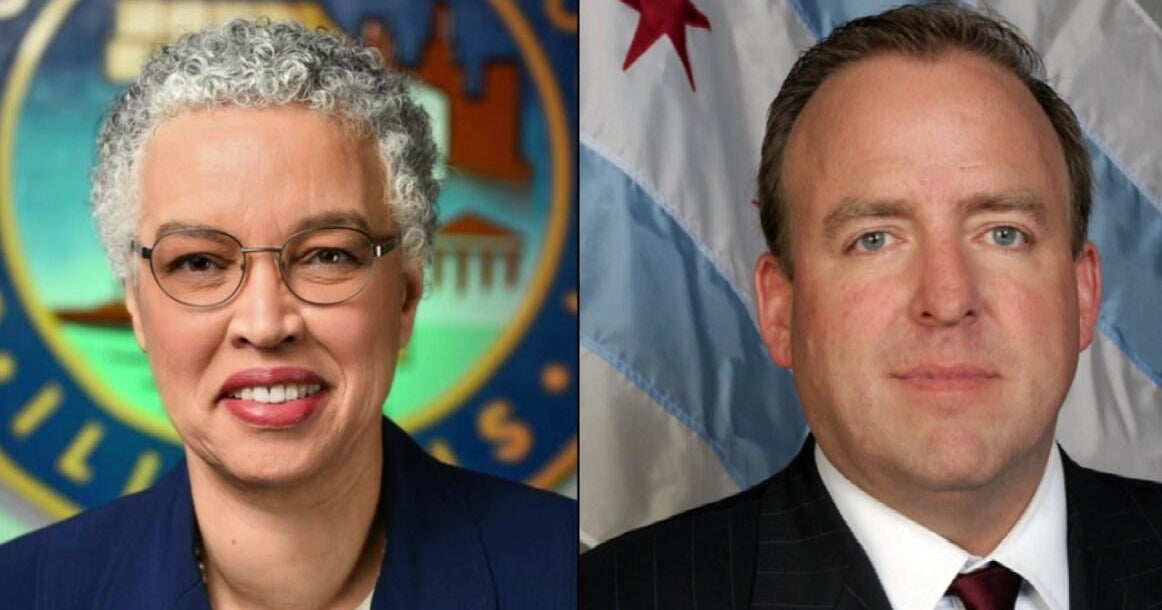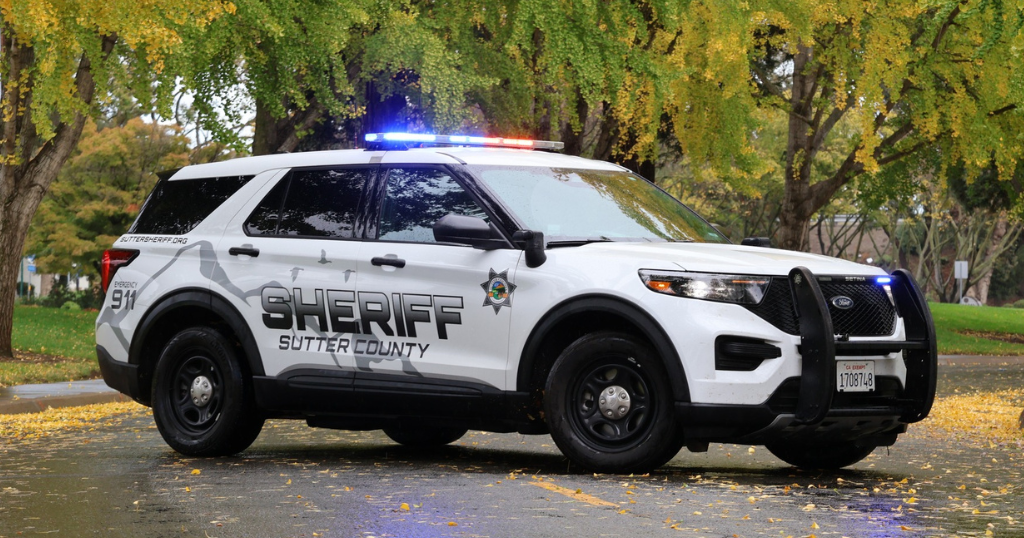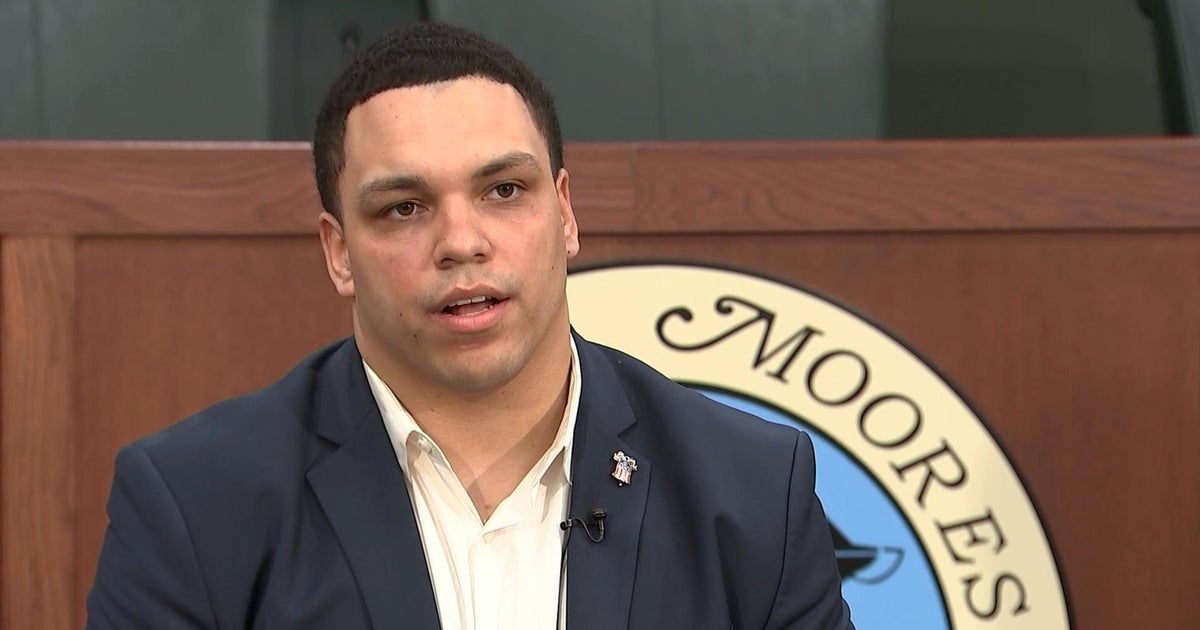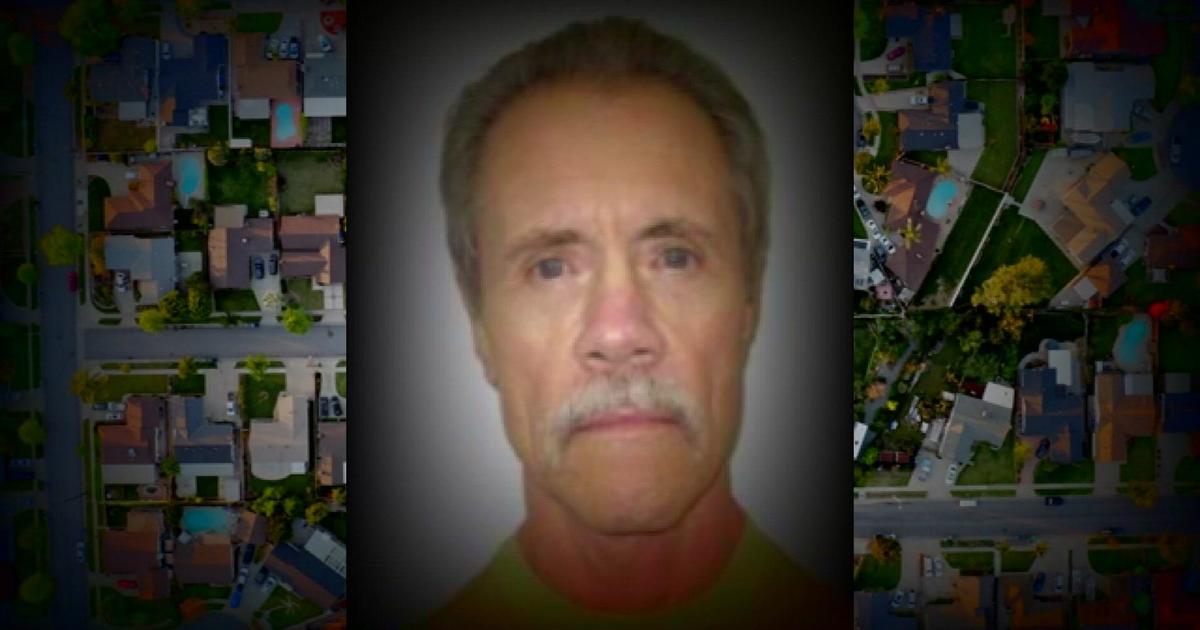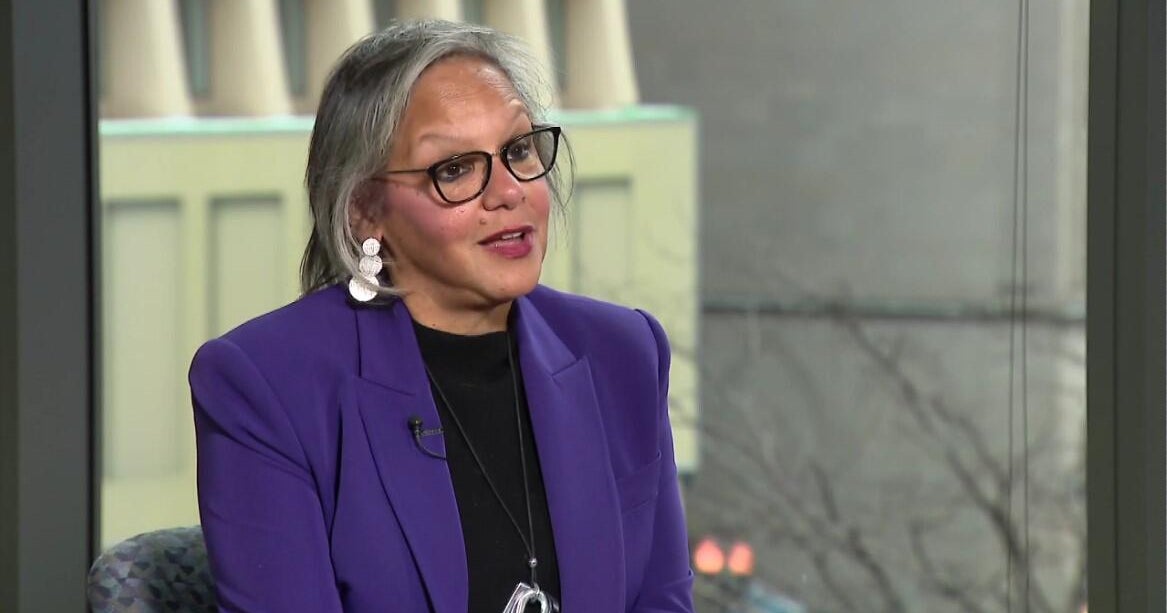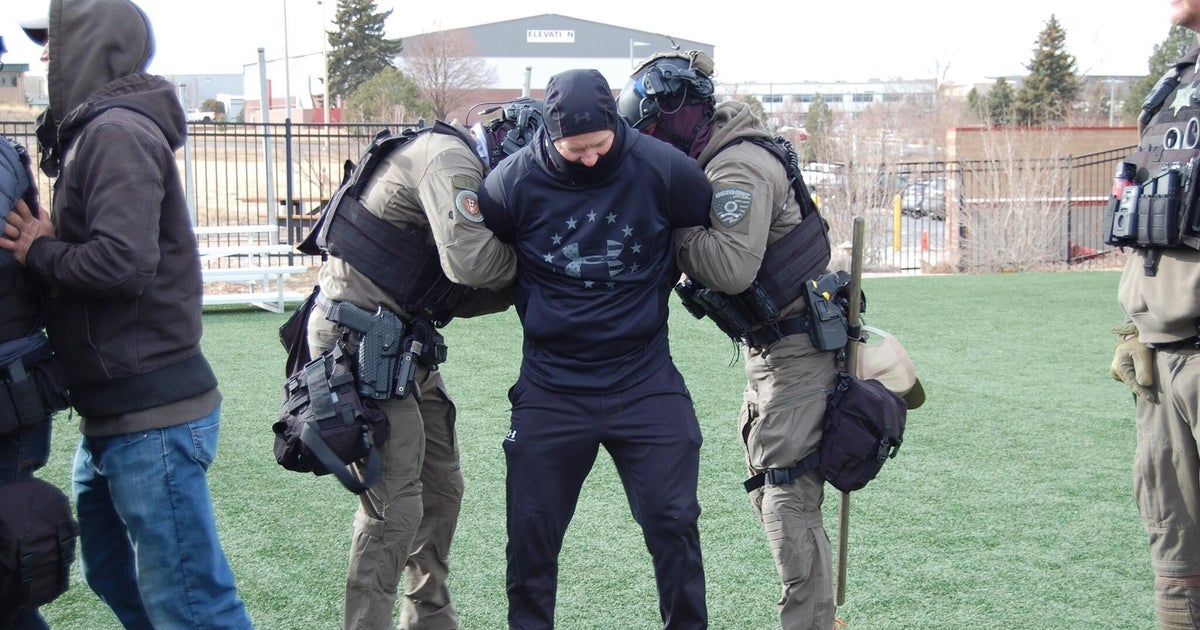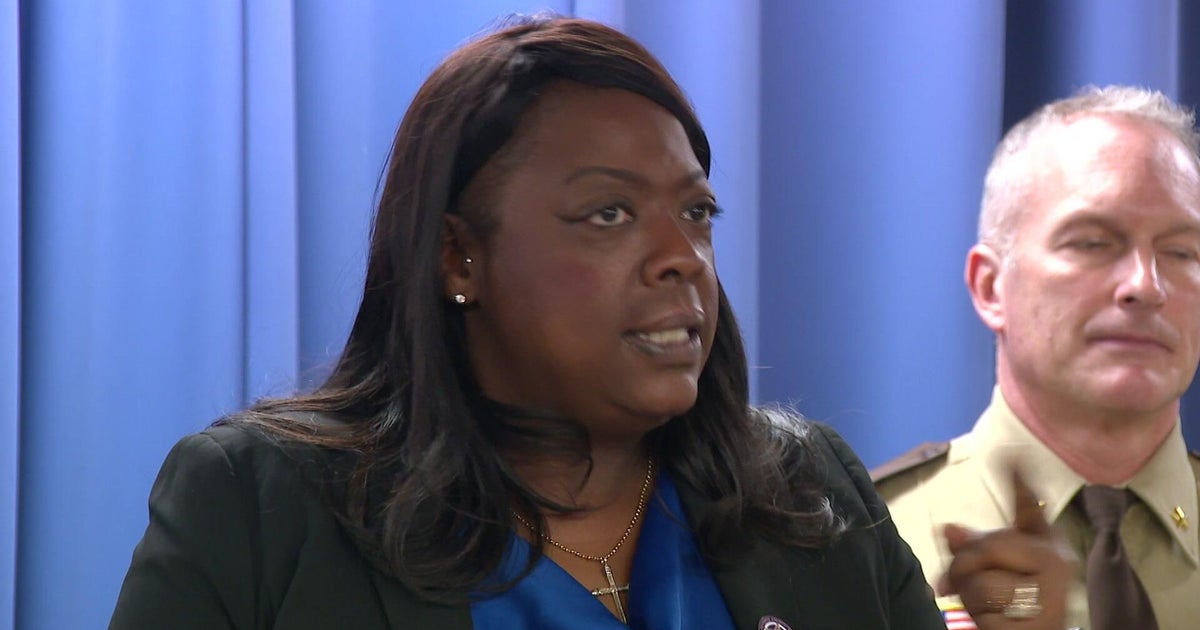Dart, Jones Spar Over Proposed Changes To Cemetery Oversight
Updated 04/13/11 - 5:53 a.m.
CHICAGO (WBBM/CBS) -- Cook County Sheriff Tom Dart and State Sen. Emil Jones III (D-Chicago) were engaged in a war of words on Tuesday over proposed changes in state law overseeing cemeteries.
Dart said he is concerned that new legislation would water down existing oversight of cemeteries in Illinois and open the door for a repeat of the grave selling scandal at Burr Oak Cemetery.
"This literally takes all of the requirements, all of the new rules, and everything that was meant to bring some degree of comfort to frankly, the entire state … and throws it out the window," Dart told CBS 2's Suzanne Le Mignot.
Dart says he is "aghast" by the legislation.
"This is taking a meat cleaver to the bill, and literally obliterating it so there's no longer a bill here," Dart continued.
LISTEN: Newsradio 780's Bob Roberts reports
Podcast
But Jones said cemeteries would still be watched for violations.
"No good can come from sensationalizing this topic," Jones said. "The conduct at Burr Oak Cemetery was a terrible but isolated incident, and our legislative reaction should be carefully measured to avoid unintended negative consequences. My pending legislation is intended to protect consumers while avoiding unnecessary cemetery abandonments and diminished cemetery maintenance."
Beefed-up regulations upon Illinois cemeteries, enacted a year ago following the disclosure of improprieties at Burr Oak Cemetery, in Alsip, are the target of legislation expected to go to a vote this week in the Illinois Senate.
"There's tweaking that could be done, but this takes a meat-cleaver to it," said Dart, who spearheaded the effort to change the law a year ago.
As WBBM Newsradio 780's Bob Roberts reports, Dart, a former state legislator, said the measure sponsored by Jones would undo last year's changes and all but eliminate regulation of Illinois cemeteries.
But Jones stood by the proposed changes.
"Senate Bill 1853 does not affect or diminish any criminal statute, and cemeteries will continue to be subject to oversight regulations Cemeteries will still be required to honor consumer contracts, bury people in the proper places, maintain records so family members can easily find their loved ones and appropriately maintain cemetery grounds," Jones said in a written statement. "Since the Burr Oak incident, my colleagues and I have become aware of the criminal issues that surround cemeteries, and we will continue to legislatively address these problems to prevent another tragedy."
Sweeping changes were enacted following disclosure that graves were routinely opened, remains dumped in a rear portion of the cemetery, and grave sites were reused. Sheriff's police personnel found records a shambles, and the cemetery was closed to the public for months as detectives tried to determine how many graves had been reused.
Four former employees await trial on multiple felony charges related to their administration of Burr Oak. The cemetery is the final resting place for civil rights icon Emmett Till, a number of jazz musicians and Negro League baseball players.
Dart said that the bill would eliminate the central state database for cemeteries that is documenting more than 80 percent of all burials in Illinois, at no cost to the state. It also would eliminate the system set up to individually assign all grave spaces and providing the tracking numbers needed to find them later, if necessary.
The Jones bill also would make a number of other changes, Dart said.
He said it would change the composition of the Illinois Cemetery Oversight Board so that it is controlled by cemeteries, and would bar a state official from being its chair.
It would limit the ability of the Illinois Dept. of Financial and Professional Regulation to look into complaints about the activities and operations of cemeteries, prohibit cemeteries from releasing personal information about its employees even to law enforcement, eliminate the mandatory criminal background check of cemetery employees and proficiency tests and licensing of cemetery managers, eliminate the ability of the state to use public complaints as a basis to discipline owners of most cemeteries, eliminate a requirement that funeral home personnel witness burials to assure they're in proper graves, and reduce any fines for violations from $10,000 to a maximum of $1,000.
"All the oversight that has been put forward, in 96 percent of the cemeteries, including Burr Oak, would be removed," Dart said. "It would leave a handful of cemeteries to be regulated and remove all of the identification systems that had been set up to prevent a Burr Oak from ever happening again."
Dart said the changes would mean the four Burr Oak defendants could go back into the cemetery business.
"The cemetery association are wanting to undo everything, because it requires them to do certain things that, frankly, they should have been doing from the beginning and they don't," Dart said.
Jones said he's been joined by more than 30 other state senators and is concerned that, if the oversight laws are too harsh, smaller cemeteries would be put out of business.
"Cemeteries are financially modest enterprises with permanent maintenance and record-keeping obligations," Jones said. "By exempting smaller cemeteries from some of the stronger requirements imposed by the Cemetery Oversight Act, smaller cemeteries can continue to operate."
Jones also said that Burr Oak is not exempt from the legislation.

